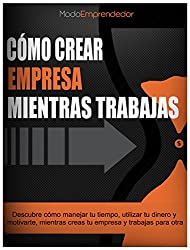
These are 7 strategies to organize personal finances effectively:
7 strategies to organize personal finances.
1. Calculate how much you spend per month.
The first step in organizing your finances is to find out exactly how much and how you are using your money.
So make an effort to keep a running record of everything you spend. You can use different alternatives:
- Spreadsheets.
- Personal financial control applications.
- and even a sheet of paper.
If you find spreadsheet formats, put all your expenses for the month from the most basic. Such as food, health expenses, water, electricity, telephone, fees and bills to pay, leisure expenses, etc.
The important thing is to list absolutely everything that is an expense. It doesn’t matter how small it is.

2. Reduce unnecessary expenses.
If your monthly income is less than or close to what you are spending, take a careful look at your budget and see where you can cut back.
Do it through a scale of priorities. For example, spending on entertainment and leisure can be reduced and exchanged for cheaper or even free activities. Prioritize essential expenses like housing, health, and food.
People often buy on impulse, without thinking about the damage this can cause to their pockets at the end of the month. Therefore, avoid consumerism, before spending your money, evaluate if it is really necessary and if it fits your budget.
A good way to control this is through a list, whenever you go shopping write down what you need first and only buy what is written there, this will prevent you from buying what you don’t need and therefore save money.
3. Save a portion of your income each month.
It is important to start saving as soon as possible. If you haven’t already, don’t waste any more time and set aside a portion of your income to save each month.
It doesn’t have to be much at first, but keep in mind that the recommended amount is between 10% and 30% of all you earn each month. In this way, you will have greater security in your financial planning.
One way to stimulate this saving is to set goals, clearly defining what you want to do with this money and start saving.
For example, if you want to raise money to pay for your child’s college, you should start saving early by investing a certain amount of money each month in a long-term investment that will pay off until you complete the required amount.
4. Invest correctly what you save.
To manage your savings wisely you have to make it work, because there is no use saving a sum of money if you get stuck. For this reason it is important to always invest your money in some investment that provides you with income.
If you have a more aggressive investor profile, give preference to higher risk investments, such as stock investments, for example. If a more conservative line is followed, it is recommended to opt for safer and more stable investments such as those offered by banks.



5. Have a reserve for emergencies.
Don’t forget that unforeseen events can happen at any time, so it’s important to save part of your monthly income to create an emergency fund.
This reserve will be used in urgent situations, such as in health cases, for example. If you protect yourself in this way, you will have more security and you will not have to resort to loans.
6. Avoid debt and always buy with cash.
If you have any debt, work to get rid of it ASAP!
Negotiate better conditions with the bank to pay it and, if your budget is tight, prioritize the payment of those with the highest interest rates.
Try not to make purchases on credit so as not to be a slave to interest. Always prefer to buy with cash instead of credit, since by paying on the spot you can negotiate a discount and save the value of a payment that would last for months.
If the use of a credit card or a loan is unavoidable, do some research beforehand, to find out what the conditions and interest charged are; in addition to the fees and the total cost of the operation.
7. Always check how you are doing.
Review your progress each month and make sure your finances are on track. If not, do a reassessment and determine what needs to be changed.
This not only helps keep your money in order, but also helps you realize what’s wrong quickly.
Conclusion.
These strategies for organizing personal finances are the first step in taking back control of your financial life.
No matter how much money you make, if you don’t become financially educated and start worrying about managing your income and expenses, sooner or later you will have financial problems.
If you have never been concerned about this issue before and have decided to study from now on, you should know that regardless of your financial situation at the moment, nothing is lost, there is a solution!
And remember, if you are really interested in creating your own business, you can read our book “How to create a company while working: Discover how to manage your time, manage your money and motivate yourself while creating a company and working for another” , where you will find all the information you need to found your own company, without having to leave your job.



